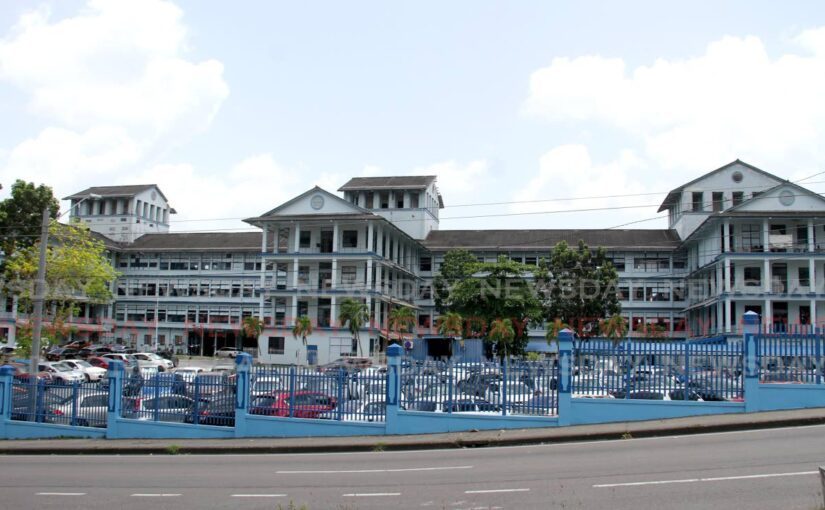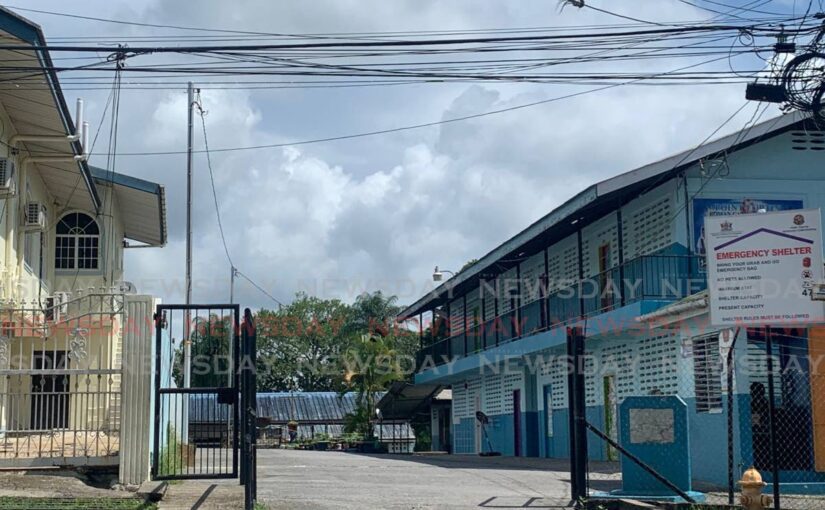

Judith Jones -
THE term of the Police Service Commission (PSC) was due to end on November 15, according to remarks by chairman Justice Judith Jones in the PSC Annual Report 2023 laid in the House of Representatives on November 15.
Jones also used the chairman’s remarks to lament the limitations and inconsistencies of the PSC’s powers in its role of oversight of the Commissioner of Police (CoP) and Deputy Commissioners (DCPs). She urged reform. Jones also shared data suggesting a low public confidence in the police in various areas of performance.
The PSC consists of a chairman and four other members, nominated by the President after consultation with the Prime Minister and Opposition Leader, pending the nod of MPs.
“The President shall issue a Notification in respect of each person nominated for appointment under subsection (3) and the Notification shall be subject to affirmative resolution of the House of Representatives,’ says the Constitution (section 122.)
Current members are Jones, Maxine Attong, Maxine King, Rajiv Persad and Ian Kevin Ramdhanie.
>
Minister of National Security Fitzgerald Hinds replied via WhatsApp to Newsday’s query on the status of the PSC.
Saying the PSC report was laid in the House that day, he said, “We will debate the nomination of the members, possibly on Monday.”
Newsday also inquired of the Office of the President, which promised to find out the situation, but by press time had not got back to Newsday.
Newsday tried but was unable to contact Jones.
Her chairman’s remarks said, “This is the last annual report which we, as a commission, will present to the President as the appointments of all five members come to an end on November 15, 2024.”
She said her remarks would focus on systemic difficulties the PSC had met, even as her proposals to reform the PSC’s form and role had been made in her previous annual report and the commission’s submission to the National Advisory Committee on Constitutional Reform.
Jones remained hopeful for a consideration of her suggestions for the PSC’s “restructuring and refocusing.”
“For now it is sufficient to recognise that we cannot continue to do the same things in the same way and expect different results.”
She sought to correct a very public misconception, saying the PSC was “not a crime-fighting body.”
>
Jones said, “The duties and responsibility for fighting crime vest in the TT Police Service under the leadership of the Commissioner of Police.
“To blame the commission for the state of crime in the country is to take the easy way out and to hide our collective heads in the sand.
“It is indicative of a refusal to full frontally face and recognise each of our individual responsibilities in the battle against crime.”
She said the criteria to be CoP or a DCP were set by Cabinet, not the PSC. The requirement for a specified masters degree, experience in law enforcement and TT nationality, plus the incentives of such offices, determined the pool of candidates.
“Ultimately, and perhaps understandably so, the prescribed criteria and the incentives offered are skewed towards persons within the police service.”
Jones lamented a lack of any means for the PSC to ensure leadership training or succession planning.
“The existence of suitable candidates therefore remains ‘hit and miss’ and dependent on the industry and determination of the individual candidates rather than a concerted effort to create effective leaders and allow for the transition of leadership responsibility from one generation of officers to the next.
“The upshot of this is that the existing pool of candidates remains the same with very few new inclusions.”
Jones said the recruitment process to appoint effective leaders ought to be thorough and exacting.
>
However, the legislation’s requirement for a security vetting of candidates posed a problem for the commission.
“Unlike, for example, the Police Complaints Authority, the commission is not vested with investigative powers.”
She said while security vetting in other circumstances is done by specialised police units, this is not a viable option for the PSC’s appointments.
“Further confidentiality provisions in the relevant legislation prohibit the commission from accessing valuable information from bodies such as the Police Complaints Authority and the Financial Intelligence Unit.”
The PSC cannot use anecdotal information on candidates, owing to considerations of natural justice, good administration and fairness.
“Without the means to access pertinent information on candidates which would allow the commission to assess that candidate’s security risk level the commission is at a disadvantage with respect to assessing the security risk posed by the candidate to the organisation and to the nation at large.”
Jones said the PSC’s role is not to monitor the whole police service but only monitor the effectiveness of the CoP and DCPs.
She said under the Constitution, the CoP must provide six-monthly reports to the PSC. The PSC can also ask the CoP for documents on financial, legal and personnel matters, and to provide any special report on the management of the police. The PSC may also do surveys, Jones added.
However, she spelt out several shortcomings of the PSC’s powers.
>
“The commission’s monitoring function therefore is limited to documents provided to it by the CoP.
“The commission does not have the power to independently check the accuracy of the information received.
“Absent is the ability to obtain information on the performance of the officers in the discharge of their functions from sources other than the CoP except by way of the surveys.”
Even the information in surveys has its own inherent weaknesses, she said.
Jones said, “It is imperative that if the commission is to achieve its constitutional remit, that it be provided with the means of independently verifying and investigating the efficiency and effectiveness of the officers under its purview.”
She also lamented limitations on the PSC’s use of information obtained by the monitoring process.
“The Constitution links the monitoring function of the commission to a performance appraisal system (of the CoP and DCPs).
“The Constitution permits the use of these reports for the information of the office holders and as a basis for the termination of services for inefficiency.
“There is no other stated outcome attached to the monitoring process in the Constitution. Nor do the functions and powers of the commission allow it to use the information received in any other manner or for any other purpose.”
>
Jones said the aim of any performance-appraisal system was to ensure office-holders performed within the ambit of the organisation’s strategic objectives.
However, she lamented the PSC had no control over the police’s strategic objectives, which were in fact set by the CoP, presumably by internal consultation in the service.
“The upshot of this is that the commission’s monitoring function is, in accordance with performance appraisal practice, effectively limited to standards set by the TTPS.
“There is very limited scope for the commission to establish its own key performance indicators or standards of performance.”
Jones then said the PSC had an appeal function, but lamented a failure to provide suitable staff to discharge this role.
She said after ten years, the commission was still awaiting action on proposals for restructuring.
Jones also complained that contract staff are on month-to-month employment, which has a deleterious effect on their moral and on staff retention. Such workers lose a week of work every year, crippling the PSC for two weeks each year, she said. Further, such staff do not get sick, casual or vacation leave nor receive a contract gratuity.
In conclusion, Jones said it was her fervent hope her sentiments would now “fall on fertile ground.”





